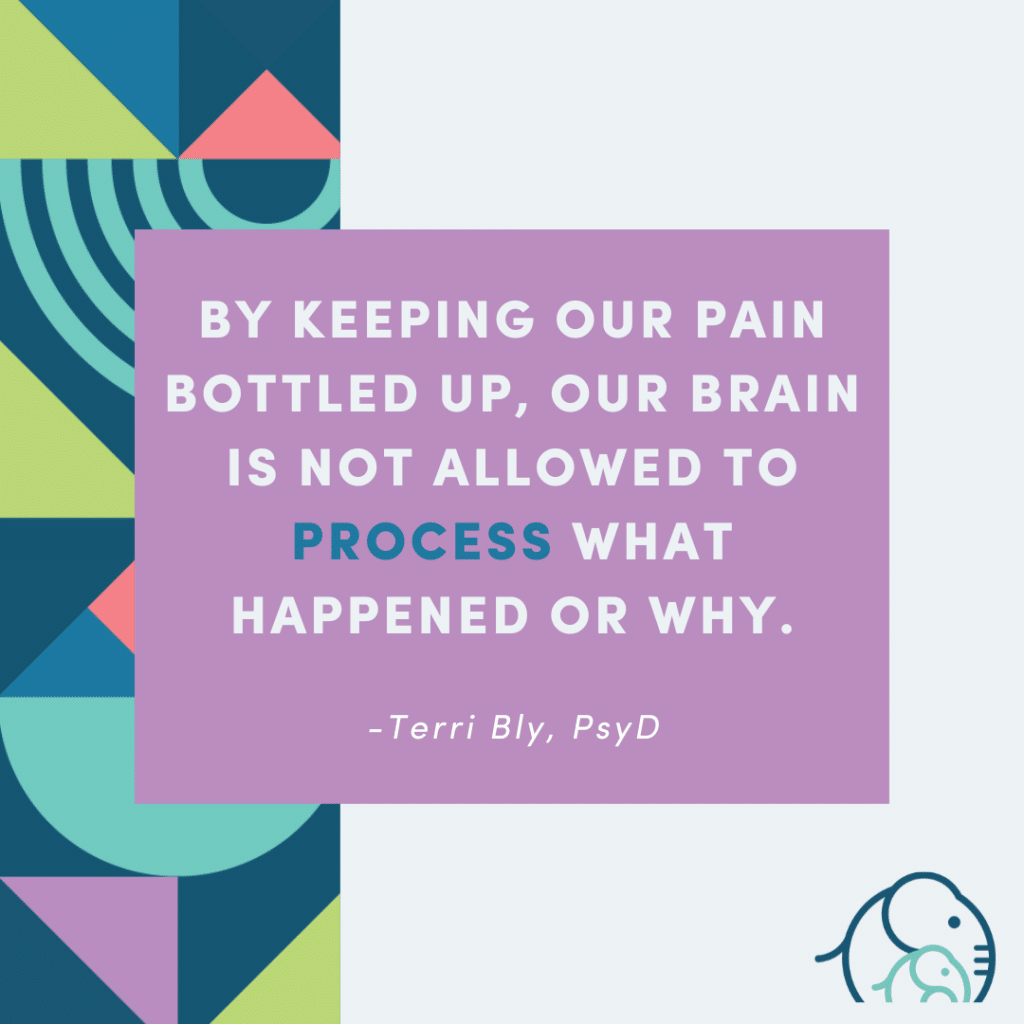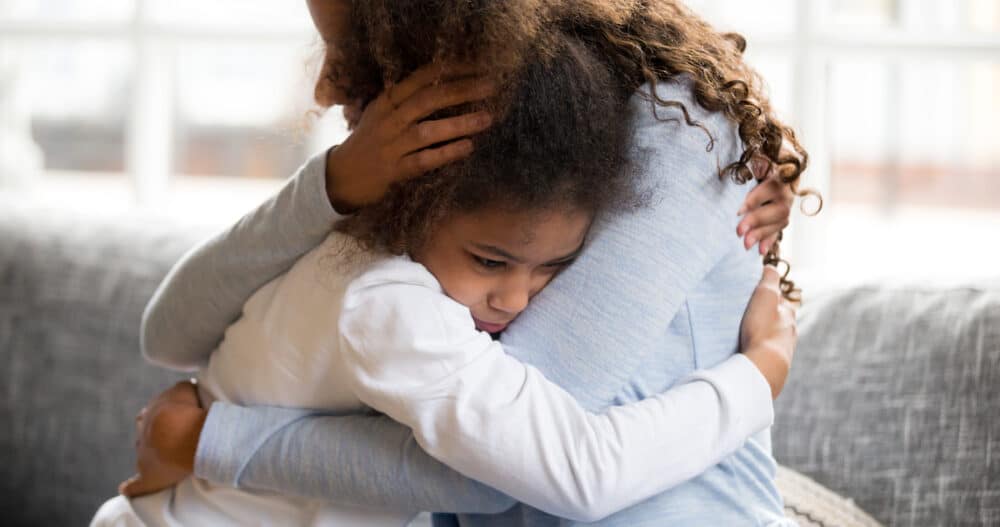Few human experiences are as universal as grief. We will all, at some point, find ourselves grieving that which we once had, but now is gone. For most of us, significant losses will happen multiple times throughout our lives, and each of those losses will change us in some way, sometimes significantly. Just think about the number of songs, stories and works of art that center around the pain of losing something or someone significant – the list is practically endless!
Grief is the name we give to the pain we feel in response to a loss, and it can be both emotional and physical. It can last a few hours, or it might stick around for a few decades. Some losses are so profound that we continue to feel the pain, to some degree, for the rest of our lives.
While death may be what comes to mind most often when talking about grief, we can also experience grief in response to the loss of relationships, a job, physical abilities we once had, or a community we once lived in but had to leave. Many parents describe feeling a deep (and sometimes unexpected) sense of grief when their children “leave the nest” and move to another part of the state or country. And I have worked with quite a few individuals who were surprised at the intensity of grief they experienced after retiring. We may even grieve the future, such as when people go through a divorce and find themselves mourning the loss of the future that has been completely upended by the loss of the relationship itself. Or when someone is diagnosed with a terminal illness, and now they must grieve a future they won’t get to have.
But what does grief look like? Is there a right way to grieve? A wrong way? And how do we know if we’re going about it in a healthy way?
Take the first step toward healing by scheduling an appointment with Ellie Mental Health today.
The Five Stages of grief
Although grief and loss are universal experiences, that does not mean we all grieve in the same way. If you are familiar with Elizabeth Kubler-Ross’s Five Stages of Grief – Denial, Anger, Bargaining, Depression, Acceptance – you may be under the impression that there is indeed a “normal” path for navigating significant losses. While these 5 stages can serve as a somewhat useful tool for thinking about grief, most people do not go through them in a predictable order, or even at all, since plenty of people don’t experience all five emotional states as they work their way through their own grieving process.
For example, someone whose elderly parent dies following a prolonged terminal illness might initially experience a feeling of relief, not denial, that their loved one’s suffering has come to an end, even if their relief is followed by a profound sadness. If you are fired from your job, you may launch straight into feeling angry, which could be followed by acceptance a week later as you start looking for a new position, and only a few months after that do you feel a bit of sadness as you think about your favorite colleagues from the last job that you may not get to see again.
In other words, there is no “right” or “wrong” way to grief a significant loss. Different people grieve differently, and the same person might experience grief differently depending on the type of loss. Children often express grief differently than adults, and someone who has experienced many losses over their lifetime will probably grieve differently than someone who is experiencing a major loss for the first time.
Why grieving is important
While it isn’t at all important to grieve in a certain way or for a specific period of time, it is important that we allow ourselves to grieve. When we experience a significant loss and we do not go through a grieving process – maybe by pretending that we are not affected by it, or refusing to talk about it, or perhaps we are prevented by others from talking about it – it can have long-lasting negative effects on our mental, emotional and physical well-being. In fact, one thing we know about post-traumatic stress disorder (PTSD) is that individuals who are not able, for whatever reason, to go through a grieving process after experiencing a traumatic loss are more likely to experience symptoms of PTSD than are people who begin processing their grief within a few months after their loss.
By keeping our pain bottled up, our brain is not allowed to process what happened or why. When we talk about our loss with a trusted individual or group of individuals and allow ourselves to feel the pain of the loss, we begin the process of integrating that loss into our understanding of ourselves and of the world around us. In other words, going through the grieving process is how we heal and move forward with our lives.

Moving forward does not mean moving on
I think many people hold the belief that after a certain amount of time has passed, we should “get over” our losses and no longer be emotionally affected by them. I’ve had clients come to me distressed that they still feel intense emotional pain on the anniversary of a loved one’s death, even though it’s been years, or even decades. They worry that there is something wrong with them that they still feel so sad (or angry, or whatever other emotions are connected to the loss), since the loss happened so long ago.
Conversely, I’ve talked with people who worry that if they stop feeling intense pain when they think about their loss – especially when the loss involves the death of a loved one – it means they no longer care that their loved one is gone. They worry that moving forward with their life means they didn’t really love that person in the first place, or that they will forget about them altogether. Moving forward feels like a betrayal.
But moving forward is not about getting over or forgetting what or whom you lost, nor does it mean you no longer feel pain when reminded of your loss. For better or for worse, you can go through a very healthy grieving process and still be brought to your knees by the pain of the loss from time to time – and yes, even years later. The loss and its significance to you may not always be front and center in your mind as time goes by, but you will almost certainly feel some feelings about it once in a while, and sometimes when you least expect it.
Moving forward after grieving a loss means learning how to weave that loss into the rest of your life. It means honoring that you have lost something or someone significant and, at the same time, recognizing that your life consists of other things as well. It means that your loss is part of you, it has shaped you, but it doesn’t define you.
When grief gets stuck
Sometimes the negative emotions a person experiences after a loss can turn into something more debilitating. When a loss is so significant that it overwhelms your ability to process and make sense of it, you can get “stuck” in the grieving process. This is what the Diagnostic and Statistical Manual (the DSM) refers to as Prolonged Grief Disorder. It shares many of the same symptoms as Post Traumatic Stress Disorder, and just like PTSD, it can completely derail a person’s ability to function.
For example, men are approximately 9 times more likely to die of suicide following a divorce than men who do not experience this particular loss. Men are also at increased risk of experiencing a prolonged depressive episode after losing a job. Parents who lose a child (or children) are likely to experience severe depression, which may last for years or even decades following their child’s death.
Again – and I can’t emphasize this enough – a diagnosis of Prolonged Grief Disorder does not mean the person is grieving incorrectly. For whatever reason, they just didn’t have the resources they needed to integrate that loss into their lives and continue moving forward. They got stuck in their grief, and they may need some help getting unstuck.
Symptoms of Prolonged Grief Disorder
If you, or someone you know, experienced a loss a relatively long time ago and are experiencing some of the following symptoms, it might be a good idea to seek help from a mental health professional, to see if you or your loved one might benefit from additional support or treatment:
- Identity disruption (such as feeling as though part of oneself has died).
- Marked sense of disbelief about the death.
- Avoidance of reminders that the person is dead.
- Intense emotional pain (such as anger, bitterness, sorrow) related to the death.
- Difficulty with reintegration (such as problems engaging with friends, pursuing interests, planning for the future).
- Emotional numbness (absence or marked reduction of emotional experience).
- Feeling that life is meaningless.
- Intense loneliness (feeling alone or detached from others).
Grief can be an excruciatingly painful experience, and moving through the grieving process can be one of the hardest things we face as humans. The good news is that we all go through it, which means there is a ton of support out there for anyone who is struggling to understand what happened to them or why, and needs help navigating their way through the grieving process.


